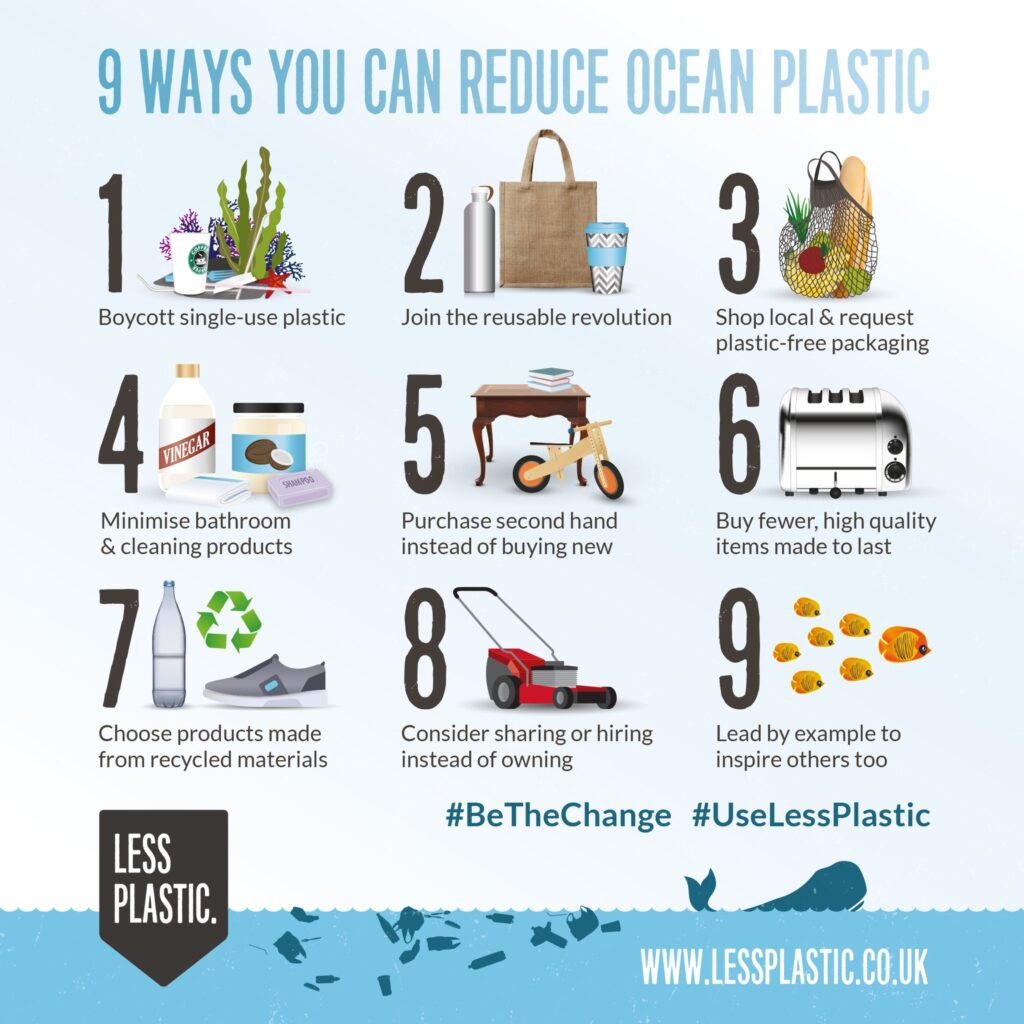Where is the POLITICAL will to stop us all ‘Drowning in Plastic’?
The BBC broadcast a horrifying documentary yesterday on October 1, showing the extent to which waste plastic is clogging up our rivers and seas and the appalling harm being done to both plant and animal life as a result.
It represents a shocking dereliction of duty on the part of the organisations around the world that are charged with handling this material responsibly – and are ignoring that responsibility on a global scale.
I wrote a few words on Facebook and they seem to have enjoyed some popularity so I am reproducing them here:
I’m watching ‘Drowning in Plastic’, the BBC documentary about waste plastic killing wildlife in the world’s rivers and oceans. I think it’s supposed to be making me feel guilty but actually I’m angry.
We don’t get much choice about our use of plastic, or the other stuff that gets thrown into the water and forgotten. We have it foisted upon us in the packaging of the things we buy and, as a rule, we handle it in the manner that (we’re told) is responsible.
It is the people we have to trust to get rid of it responsibly who are letting everybody (and I mean everybody) down.
There needs to be some accountability here. From what I’m seeing, I’m unwillingly complicit in a crime of such enormity that my mind flinches away from considering it. And that is not acceptable.
I want to know who is responsible for this – and I notice that this information is missing from the film. I want to know what can be done to hold them to account – and if there’s no accountability at the moment, I want to know what can be done to BRING them to account. And I want to know how people like myself can participate in determining what the remedial action should be.
I bet nobody’s going to put it right in anything like a timely way unless people like us roll up our sleeves and get our hands dirty.
And I don’t mean by fishing this crap out of the water ourselves.
You’ll have spotted that I asked some questions that I considered pertinent: Who is responsible? What can be done to hold them to account? What can be done to bring them to account if there is no legal recourse now? And how can ordinary people participate in bringing justice to this matter?
A few people made suggestions on Facebook but I’m keen to see more. I spotted an infographic on Twitter that suggested ways we can make our opposition known – you can see it at the top of this article – but I don’t think it goes anything like far enough. I don’t think enough people will take the kind of mass, sustained action that would be necessary to make the uncaring corporates change their minds.
As one respondent stated: “Let’s all pretend it’s our personal responsibility while big corporations are raping the planet. Keep focussed on individuals that way people don’t look where the real problem lies. The idea that we can save the planet by not using plastic washing up brushes etc is naïve in the extreme.”
Another respondent voiced his suspicion: “I feel that a lot of the plastic waste floating around in the world’s oceans has come from unscrupulous shipping companies who have been contracted to transport our waste to other countries for processing and then just dump their cargo at sea, pretty much a bigger version of what some commercial vehicle owners do when offering to remove your rubbish for a fee.”
Another supported it: “Do the shipments arrive at their destinations?
Who checks they’ve got there?
With the “flagging out” of marine transportation who checks the shipping arrangements?
What if a large percentage of shipped recycling is actually just jettisoned en route and the ships then proceed somewhere else to pick up more?
How does anyone manage to find out anything more about this?”
They are good questions, especially as: “Inspectors for various things were one of the losses in the Tory’s ‘bonfire of the quangos’ that they managed to persuade everyone to applaud. We need a rebuilding of the quangos (but with a less tainted name).”
Many of you may consider this a useful solution: “I’ve started to send all my excess plastic packaging back to the customer services department of whichever supermarket it came from. Most of them have a freepost address, so you just package up all the surplus plastic and mail it to them at their expense.” But what will those corporations do with the waste?
One suggestion as a solution was, “We need a Plastics Act rather than just randomly targeting individual items.” I would agree, but I think it would need to be international rather than just operating in a single country.
Here’s another: “We need much more strict regulations from the top down, and this indeed means governments being accountable for their decisions on an environmental basis across the board. Including economic modelling to properly respect environmental concerns, the same for businesses, and right through society to farmers and consumers. In short creating a ‘fairer’ society to accommodate these interventions. The governments should be accountable to the UN and subject to harsh penalties (not piffling fines) in case of infringement. I think we should all engage with the clean up at this stage as far as possible, not because it’s the peoples’ fault per se but because it has gotten that bad. But ultimately the world’s governments need to be held to serious account for their treatment of the environment on so many levels.”
But who will impose such regulations and how will they be enforced? Should there perhaps be an independent, international organisation?
Perhaps it would be an easier argument to make if an alternative material were available? “Hemp is a really versatile material, clothes, paper, rope, soap, oil – what’s needed is a decision (and funding) taken nationally, so that manufacturers set up to make things in plastic are given compensation for refitting their factories. Major university departments study materials science, with government funding initiatives they could invent something surely.”
What about this issue? “Corporate courts are probably preventing us doing much towards polluters paying for remedial costs.”
We do recycle many plastics – or we think we do. Consider this: “All the recycling efforts we make – then strangely, recycling centres all over Britain keep going up in flames. At the end of August, from about 2 hours of google searching, I found 15 centres had caught on fire since April. That’s a lot of carcinogenic dioxins being released, – but what a convenient way of getting rid of it all, convenient for the contracters that is.” What is the story here?
Make no mistake: This issue will magically go away if we don’t keep it on the public agenda – because governments and corporations can’t be bothered to deal with something that may reduce profits/harm the economy and don’t care if it kills a few animals and plants (they won’t accept the overarching threat to the ecosystem that the plastic poisoning of the planet represents).
So the question remains: What do you think should be done about it, and how do you propose to make it happen?
I await your contributions.
Visit our JustGiving page to help Vox Political’s Mike Sivier fight anti-Semitism libels in court
Vox Political needs your help!
If you want to support this site
(but don’t want to give your money to advertisers)
you can make a one-off donation here:
Here are four ways to be sure you’re among the first to know what’s going on.
1) Register with us by clicking on ‘Subscribe’ (in the left margin). You can then receive notifications of every new article that is posted here.
2) Follow VP on Twitter @VoxPolitical
3) Like the Facebook page at https://www.facebook.com/VoxPolitical/
Join the Vox Political Facebook page.
4) You could even make Vox Political your homepage at http://voxpoliticalonline.com
And do share with your family and friends – so they don’t miss out!
If you have appreciated this article, don’t forget to share it using the buttons at the bottom of this page. Politics is about everybody – so let’s try to get everybody involved!
Buy Vox Political books so we can continue
fighting for the facts.
The Livingstone Presumption is now available
in either print or eBook format here:
Health Warning: Government! is now available
in either print or eBook format here:
The first collection, Strong Words and Hard Times,
is still available in either print or eBook format here:











Not to mention the damage we have caused ourselves, from the BPA compound affecting the hormones that control most of our body and its replacements being found to be no better.
And the most important of all, plastics are CARCINOGENIC. so all that stuff in the water is poison.
Of topic slightly but carpets are made of millions of tiny plastic fibers. These have been found in the countryside in fields with crops growing, they also are breathed in.
My mother god rest her, died from lung cancer, they gave her a year and sadly they were right.
She had never smoked and they told her it was not from second hand smoke either. But she did have a threadbare carpet in her living room for at least a decade (It wasn’t because of a lack of money, she was just stubborn)…….
As the Consciousness of Sheep blog shows, the plastic we use is a waste byproduct of the oil industry. If we didn’t use plastics, there would be literally mountains of waste piled up around oil refineries.
“Put simply, then, the reason we have so much plastic pollution is that we produce too much plastic. The reason we produce too much plastic is because oil refineries have to do something with the waste products. Neither consumption strikes, bans or additional recycling solve the waste problem; they merely move it back to the oil refineries.”
http://consciousnessofsheep.co.uk/2018/02/19/the-plastic-trap/
Until we come off our addiction to fossil fuels as a species, we will never end the plastic problem.
Until we end the fantasy of unlimited growth on a finite planet, we will never come off our addiction to fossil fuels.
Until we restrict the growth of the population, we will never come off the fantasy of unlimited growth.
Until we accept Degrowth as a concept, we will never restrict the growth of the population.
Until that is, Mother Nature forces the concept on us, as she is now doing.
The consequences of where we are up to now are clear:
http://www.pnas.org/content/114/30/E6089
“We will run out of peak air, long before we run out of peak oil.” Richard Manning.
There is a clear link between globalisation, austerity , high levels of private debt and plastic pollution. It goes like this.
1. Capitalism wants higher profits and cheaper labour.
2. It outsources to distant countries from where the jobs used to be (eg-farmed salmon from Vietnam) under the guise that the ‘free’ market will improve living standards in those countries.
3. Austerity imposes stagnant wages and high levels of consumer borrowing to keep the economy ticking over because of the lack of Government spending.
4. because of 3, above, people have limited disposable income and need cheaper and cheaper goods.
5. These cheaper goods (China!) are less durable so need to be replaced more often which equals more packaging, transportation and pollution.
There is a problem at the heart of capitalism: It is not compatible with environmental care because profit seeking demands high private debt and cheap labour.
We need collective solutions and lots of co=operation between national Governments. The free market fundamentalist ideology will not allow this.
This plastics problem looms much larger than most of us realise. For instance, we have only just found that microfibre cloths, given because they avoid harmful chemicals used in cleaning, actually contain plastics: polyester, polyamide and polypropylene. These are hard to destruct apparently, so they just break down slowly in our seas and fish eat the fibres as they seem like foodstuff. We also have a nearly new incinerator in our town (Basildon) which, apparently, disposes of plastics. However many people have noticed black spots of what look like glossy paint on the windowsills of their houses. This is a fairly new occurrence and I have to wonder if that is released from the flu of the disposal plant. I would guess that, if it is, it does not contain the elixir of life! Could it be another way the Right wing have found of getting rid of those useless working classes? (Now they have successfully imported tons of foreign workers to supress wages etc.!)
I heard mention on the Radio just a while. back that some scientists have developed or created an organic enzyme that consumes plastic, but heard nothing more about it since. I don’t know what this enzyme turns plastic into, presumably it must emit a waste product? perhaps a gas, maybe it gives off oxygen? I don’t know. Or maybe it’s too risky to release into the environment and needs more work to make it safely usable, otherwise it would contaminate the water, get everywhere, and cause all plastics to disintegrate.
A few years ago I read that we had shipped a great amount of our plastic waste to China but that country needed it no longer. I’m sure your educated guess is that ships full of rubbish are still doing a roaring trade in collecting waste and then dumping it in the sea.The next study should research who is doing the dumping which has vastly increased over the last decade.
” … 10 x Stronger Than Steel In The 1940’s: Henry Ford’s HEMP Car
Ford spent more than a decade researching and building his Model-T car which was not only constructed from hemp but was also designed to run off hemp bio-fuel? Whatever happened to this idea?… ”
https://www.collective-evolution.com/2013/02/25/henry-ford-hemp-plastic-car-stronger/
” … Hemp used to be used for many things: clothes, cars, plastics, building materials, rope, paper, linens, food, medicine and so on.
In fact, it used to be mandatory in the United States for farmers to grow hemp if they had the land…”
https://www.collective-evolution.com/2012/12/05/how-hemp-became-illegal-the-marijuana-link/
I’ve yet to read this article but I will go so far as to say that I doubt that there is any. I remember not whether, or not I have told you this but maybe a decade since, I saw a film in which one of the characters was campaigning against the use of non-recyclable packaging. That movie was Man About The House and it was 1972!!! We have had DECADES to get to grips with this. Why are we still discussing it nearly 50 years later?
We need a packaging and recycling act that ties the two together. A restriction on excess packaging, a definition of the materials that can be used and a standardisation of recycling services around the Country.
This will reduce, maybe provide the opportunity for reuse through refills and improve recycling!